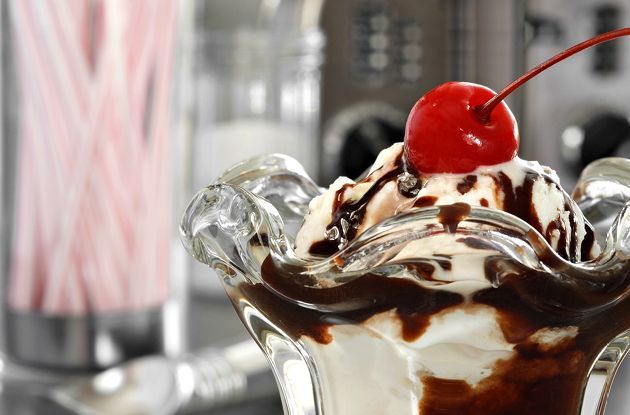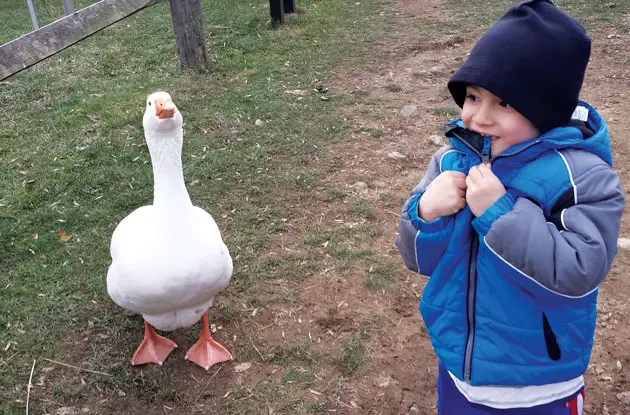Get the Best Kid-Friendly Activities
Sent to You Weekly!
The Luncheonette, situated in a village bordered by both a train station and the waterfront, was a place where folks of all kinds found comfort in the food, and in my family, my uncle especially, known as the nicest man in town; he never turned anyone away. His unspoken motto might as well have been, The coffee is free if you can’t pay. More than once I’d spy him slipping a cup of tomato soup to Nick, a street addict who lived behind the train tracks, and others like him.
Nanny, my Irish grandmother, red-haired and red-lipsticked, cashier and bookkeeper, tried to keep a tally of the meals and drinks Uncle Joe gave away so she could at least attempt to keep the books. Once she came in late on a busy day and Uncle Joe had left the cash drawer out on the counter for people to make their own change. “Jesus, Mary, and Joseph,” Nanny would say. “It’s hopeless.” But I knew my Uncle Joe was trusting, and that seemed right to me.
Eighth grade, age 14, still shy, I took my place on the other side of the counter, serving instead of being served. I worked as a waitress after school. Poppy, my grandfather, would stop by, order the breakfast special at $1.95, and leave me a $5 tip. “You work too hard, Martie,” he’d say. I felt rich.
And I saw plenty who were not. Tony was our most colorful patron: It was a guess on any given day whether he would be Tony or Tina (his shoes gave it away—silver heels with peep-toes or sneakers with holes, both pulled from a dumpster where he acquired his eccentric wardrobe). “Jesus, Mary, and Joseph, who is he today?” my Nanny would say, waiting to see which restroom Tony would use.
Maybe it was my shyness, or the way I held my head, I don’t know, but the downtrodden, the outcast, any customer who could not pay, sat at my counter, particularly on cold nights. I learned the art of listening and the meaning of acceptance while pouring coffee and mixing milk shakes.
One night Tony came in, as Tina, particularly anxious. “What shoes do you think I should wear to the dance?” Tony asked as I refilled his coffee. He was 30, tops, which was old to me then. His hands shook as he put on lipstick, completely missing his lips. There was a new bruise on his left eye. I slipped him a hot burger, greasy from the grill; my uncle would not mind.
The Luncheonette closed decades ago and I’ve since moved far from Long Island. I have children and I wish for them a place, not Starbucks, where I can take them and surround them with kisses, root beer floats, sweetness in a fountain glass—and so much more.
Also see:
Local Parents Share How They Are Learning to Let Go





